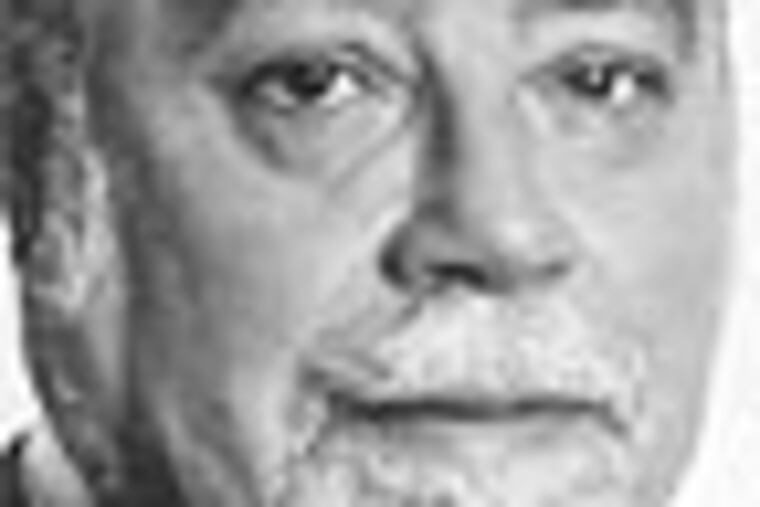J. Bruce Llewellyn, entrepreneur
J. Bruce Llewellyn, 82, a prominent businessman and former chairman of the Philadelphia Coca-Cola Bottling Co., died of kidney failure Wednesday, April 7, at home in Manhattan.

J. Bruce Llewellyn, 82, a prominent businessman and former chairman of the Philadelphia Coca-Cola Bottling Co., died of kidney failure Wednesday, April 7, at home in Manhattan.
In 1985, Mr. Llewellyn and 76ers superstar Julius Erving became majority owners of Philadelphia Coca-Cola Bottling, acquiring it from Coca-Cola of New York and Coca-Cola U.S.A.
Mr. Llewellyn, who had made a fortune as owner of a New York supermarket chain, Fedco Foods, staked his reputation - and tens of millions of dollars - making the business a success. "I'm the guy who'll take the hit if it doesn't work," he later told an Inquirer reporter.
Initially, Mr. Llewellyn considered moving the plant out of the city. Instead, it stayed in North Philadelphia. A smaller plant was in Moorestown.
He invested $70 million on improvements to the plant and its truck fleet and supplied drivers with handheld computers. Under his leadership, minority employment increased from 11 percent to 22 percent and top management was racially integrated.
"I don't want anybody to be able to come in and say, 'I could have been this if I hadn't been black' or 'I could have been that if I hadn't been something else,' " he told the Philadelphia Daily News when he took over the company.
From 1985 until 2007, when Mr. Llewellyn sold the company back to Coca-Cola, annual sales grew from $100 million to $540 million. Philly Coke, as it was known, became the fourth-largest Coke bottler in the nation, distributing 31 million cases a year and employing 1,200. The plant also bottled carbonated water and other soft drinks.
While Mr. Llewellyn operated the plant, it consistently ranked among the nation's largest African American-owned businesses.
Though Mr. Llewellyn lived in Englewood Heights in North Jersey when he led Philly Coke, he was socially active in the city. In 2002, he and his wife, Shahara Ahmad-Llewellyn, were among the "influential" people asked by the Daily News for ideas to improve Philadelphia. They suggested a greater focus on its museums, like the National Constitution Center, along with reading and scholarship programs.
Mr. Llewellyn, whose parents were natives of Jamaica, was born in East Harlem, N.Y., and grew up in White Plains, N.Y. Former Secretary of State Colin L. Powell is a first cousin.
Mr. Llewellyn served in the Army and then earned a bachelor's degree from City College of New York and a law degree from New York Law School. He was an assistant district attorney in Manhattan and held government posts in New York and Washington before buying a chain of supermarkets in the Bronx, N.Y., in 1969.
Mr. Llewellyn also bought and sold television stations in San Diego and Buffalo. In 1989, he and a group of African American investors joined Comcast Corp. and Lenfest Communications to buy NYT Cable TV, which was renamed Garden State Cable Vision. The company, headquartered in Cherry Hill, was sold to Comcast in the mid-1990s.
"Bruce had a lot of integrity. He was very intelligent and made good business decisions," said H.F. "Gerry" Lenfest, former president of Lenfest Communications. "He was a warm and kind person, and we developed a close relationship."
Mr. Llewellyn was a founding member of 100 Black Men, a social and philanthropic organization that began in New York in 1963 and expanded throughout the United States.
In addition to his wife, he is survived by daughters Alexandra Clancy, Lisa, and Jaylaan; a sister; and a granddaughter.
Funeral information was not available.